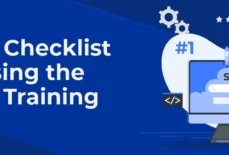Introduction
In today’s competitive job market, professionals are continually seeking ways to enhance their qualifications and stand out from the crowd. One surefire way to achieve this is by obtaining the Project Management Professional (PMP) certification. This article explores the various aspects of PMP certification and how it can significantly boost your salary.
What is PMP certification?
Understanding PMP
The PMP certification is a well-known qualification provided by the Project Management Institute (PMI) and acknowledged worldwide. It validates a professional’s expertise in project management and demonstrates their ability to deliver successful projects.

Eligibility
To qualify for the PMP certification, you need a minimum of 3 years of project management experience, along with 35 hours of project management education. However, those with a bachelor’s degree can substitute one year of experience.
How PMP Certification Enhances Your Career
Career Advancement
PMP certification opens doors to higher positions in project management. It’s a clear indicator to employers that you have the skills and knowledge to lead teams and deliver successful projects.
Salary Increase
One of the most significant benefits of obtaining PMP certification is the potential for a substantial salary increase. According to PMI’s annual salary survey, PMP-certified professionals earn 25% more on average than their non-certified counterparts.
Global Recognition
PMP certification is recognized and respected worldwide, making it easier for certified professionals to find job opportunities in various countries.
Preparing for the PMP Exam
Exam Structure
The PMP exam consists of 200 multiple-choice questions, which you must complete within 4 hours. It covers areas such as project initiation, planning, execution, monitoring and controlling, and closing.
Study Resources
Numerous study resources are available, including study guides, practice exams, and online courses. It’s essential to invest time in proper preparation to pass the exam successfully.
Tips for Acing the PMP Exam
Create a Study Plan
Create a study schedule that includes all the exam subjects. Set aside specific times for studying, and make sure to follow your plan.
Take Practice Tests
Practice tests are invaluable for getting familiar with the exam format and improving time management skills.
Join Study Groups
Joining PMP study groups can provide valuable insights and motivation during your preparation.
Conclusion
In conclusion, obtaining a PMP certification can be a game-changer for your career. It opens up new opportunities, increases your earning potential, and offers global recognition. Investing your time and effort in preparing for the PMP exam can be a rewarding endeavor.
Frequently Asked Questions
1. Is PMP certification only for project managers?
No, PMP certification is not exclusive to project managers. It’s beneficial for anyone involved in project management, including team members and business analysts.
2. Can I take the PMP exam online?
Yes, PMI offers the option to take the PMP exam online, allowing you to schedule the test at your convenience.
3. How long does PMP certification last?
PMP certification is valid for three years. To maintain it, you must earn 60 Professional Development Units (PDUs) during that time.
4. Are there prerequisites for PMP certification?
Yes, you need a minimum of 3 years of project management experience (or 5 years if you have a high school diploma) and 35 hours of project management education.
5. What’s the pass rate for the PMP exam?
The pass rate for the PMP exam varies, but it’s typically around 60–70%. Proper preparation and studying are essential to increasing your chances of passing.
This article has covered the essential aspects of PMP certification and how it can significantly boost your salary and career prospects. Whether you are a seasoned project manager or just starting in the field, PMP certification is a valuable investment in your future.











































